#spanish documentary
Explore tagged Tumblr posts
Text
So scrolling through pinterest, I'm wondering.. All the KoH fans I need help finding this film



#I'M CURIOUS I WANT TO SEE THIS#MOST OF THE SUBTITLES ARE IN SPANISH??? SO IT MIGHT BE A FOREIGN FILM OR DOCUMENTARY????? HELP#king baldwin iv#baldwin iv#kingdom of heaven#kingdom of heaven fandom#kingdom of heaven 2005#koh#koh fandom
76 notes
·
View notes
Text
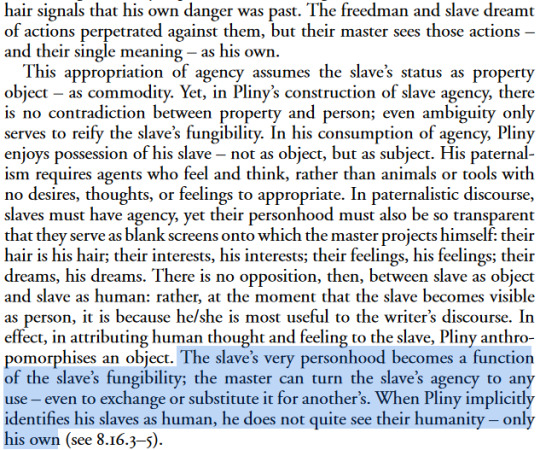
Slavery and Roman Literary Culture, Sandra R. Joshel
#i have a small collection of texts on greek & roman slavery in the late republic era and the early empire from doing#a bunch of research for a spartacus comic and this is something that rattles around in my head constantly#i dont have a reading tag bc i have a sideblog for that but hey! what's the point of a blog if not to post on it#anyway! horrific! that one quote from the spartacus documentary. that the worst thing was to 'get used to it.'#there's a previous part in this text about the assimilation of identity and the violence of benevolence etc#(i also had to do a lot of this for the crassus comic and unlocked a new debate about his wealth that keeps me up at night for other reason#like. i need a map. actually i need several maps and a spanish dictionary)#roman slavery tag
117 notes
·
View notes
Text

A woman wears a protective mask during the Spanish flu epidemic. [1918]
#documentary photography#spanish flu#disease#surreal#black and white#monochrome#history#10s#photography#u
104 notes
·
View notes
Photo



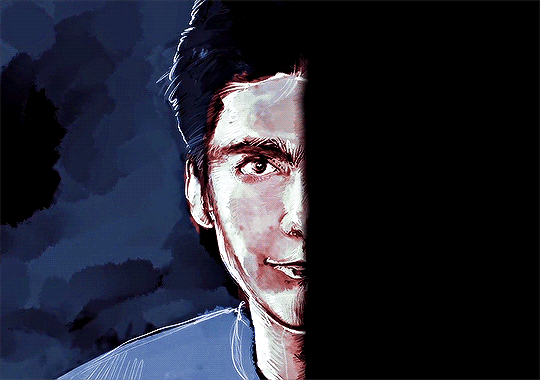
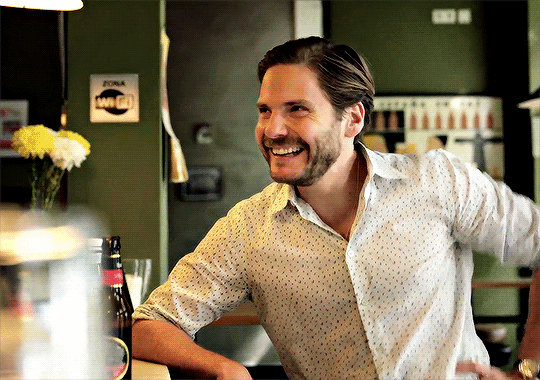
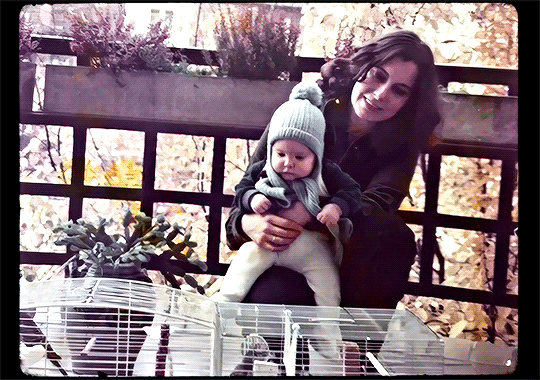

I had this morbid little game where I played dead, even at a very young age, because I found it exiciting to see how my mother would react. Then I really took it further. So from suddenly screaming and then lying down to getting in the bathtub with a hairdryer and so on... Daniel Brühl: A European in Hollywood (2023)
#daniel brühl#dbruhledit#danielbrühledit#daniel bruhl#usertammy#userlindir#userpng#*#by lola#wake up brühlnation#here's a new documentary about your favorite german spanish hobbit man#sorry for the quality
542 notes
·
View notes
Text
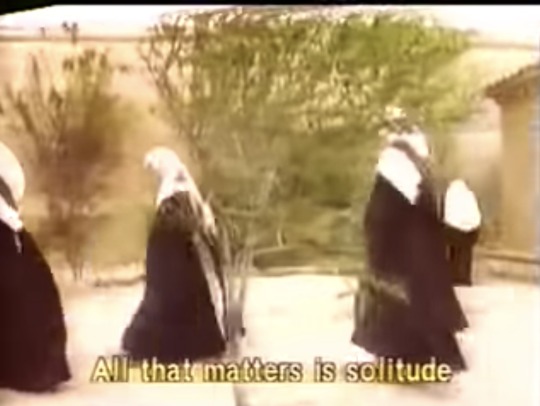
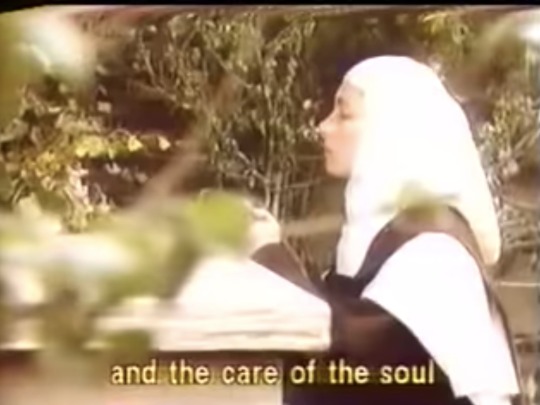
“Teresa de Jesus”
242 notes
·
View notes
Text
youtube
Guitar version of Schubert's ‘Impromptu Op. 90 No. 2’, the second (‘Allegro’) of his first set of Impromptus from 1827.
For media use license here: https://audiojungle.net/item/schubert-impromptu-guitar/55731079
Perfect for fast-paced images, silent film, black and white films, underscore for short films, web videos, impressive photo slideshows, Victorian age, Documentaries of the past and Nostalgia etc. The uplifting and inspirational mood of the classical guitar; adding light and positivity, allows it to be used in Spanish or Flamenco projects. Applicable for creatives of film, television, theatre, dance, games, documentaries, film trailer cues, advertising and podcast.
More music examples here: https://audiojungle.net/user/davidbeardmusicproduction and https://www.pond5.com/artist/davidbeardmusic
#royalty free music#film#stock music#production music#classical#music#theatre#podcast#advertising#classical music#impromptu#schubert#guitar#flamenco#television#documentaries#history#audiojungle#spanish#classical guitar#Youtube
10 notes
·
View notes
Text
Ambrose and Elliot #18
Masterpost
Previous
Next
Warnings: sickness
Elliot had an itch in his throat. At first he thought it was leftover from screaming during James’s visit, but that was a while ago and it hadn’t gone away.
He kept on with his chores regardless. It was his place to serve, and a little cold shouldn’t stop him. Master had been rewarding him at the end of every day with a shiny gold coin and Elliot didn’t want to disappoint him. It would be just as bad as the beating that would follow.
He was tired now, too. It wasn’t the satisfying kind that he’d gotten used to after a day of being a good boy. Instead of sleeping pleasant and deep, he tossed and turned at night. Cold and hot all at once, and his beloved blanket wasn’t doing its job. It wasn’t fair. Elliot had been eating more than he’d ever gotten before. He slept well. He had no open wounds (the scratches had faded just like Ambrose said), so there was nothing to infect. It wasn’t fair!
And it wouldn’t be fair to Master Ambrose to stop working. So he didn’t.
___________________
He couldn’t get out of bed. Oh gods, he couldn’t get out of bed.
The fire had gone out during the night, and the fall air chilled him. He shivered, burrowing into the quilt, blanket, and pillows. His jaw barely creaked open enough to breathe, as his nose was clogged. Why did everything hurt? His limbs weighed him down and his muscles protested at the slightest movement.
Light began to filter through the windows. Dawn was approaching. His room faced the sunrise, and it was too bright. Just yesterday, he’d cleaned the windows and now he couldn’t get up to draw the curtains closed. How pathetic.
He watched the beams of light grow longer on his floor. Master Ambrose would be awake soon. Please help me.
___________________
Elliot wasn’t up and about yet. Odd. He wasn’t in the kitchen, or the dining room, or even outside watching the sunrise.
Ambrose knocked on the bedroom door. He heard a faint whine from behind the wood.
“Ellie,” he called, turning the knob, “I’m coming in, sweetheart.”
Elliot was bundled in both his quilt and blanket. Shivering and squinting, he panted and looked absolutely awful. The fire was out, and cold.
Ambrose crossed the room, closing the curtains. Dimming the light would help Elliot’s obvious headache.
He arranged a few logs in the fireplace, striking a flint to light them. He would need to bring more wood from a neighboring room later.
___________________
“Oh Ellie,” said Master, sitting on the edge of his bed. “I’m so sorry.”
Master’s cool hand brushed away his sweaty hair to take his temperature. Master tutted, and guilt swirled in his gut. If Ambrose wasn’t panicked, it must not be that bad. If it wasn’t that bad, Elliot should be working.
He tried getting up, but Master Ambrose gently pushed him back onto the bed.
“None of that, love. Just stay in bed, and I’ll take care of everything.” Elliot was relieved. Now he could rest and obey at the same time. He’d make it up to Master later.
He let Ambrose rearrange the blankets, untangling them from between his legs. The fire was already warming the room and the pleasantness made his eyelids heavy.
___________________
Ambrose let Elliot doze as he tiptoed down the stairs. Luckily, he’d made and canned a huge batch of chicken stock for soup season. Made with roasted chicken bones and bits with peppercorns, bundles of herbs, garlic, and vegetables, the hearty stock would be perfect for Elliot. And it would provide some fluid and nutrients.
He grabbed a pint from the storeroom and set to work. He drizzled some oil in a copper pot and set the heat. Ambrose minced some garlic and ginger and tossed it in the pot. Ginger would help reduce the croaking pain in Elliot’s throat. He diced an onion while the aromatics became fragrant. He added the onion and gave it a stir. Ambrose uncapped the pint of stock, and carefully plopped it into the pot. It was so rich, it had partially congealed. Perfect.
Ambrose held off on adding potatoes. They would be fine for Elliot if cut small enough, but Ambrose knew swallowing would be tough for him. Better to start off with a thinner soup and gradually thicken it as Elliot recovered. Instead, he added some cream for protein. A generous amount of salt, and it was nearly ready.
Soon it was the perfect temperature and the scent was delightful. He ladled a portion into a wooden bowl and carried it up to Elliot’s room.
___________________
Elliot tried to sleep, but the rumble of his stomach kept the fuzziness in his brain from working. The ache in his joints was uncomfortable, and he just wanted everything to go away. He felt so heavy.
“Love, I’m coming in,” said Master.
Elliot saw the bowl and spoon as Master entered. His stuffy nose kept him from smelling anything, but even the promise of food made his mouth water. Master Ambrose sat the bowl on his nightstand, and helped him sit up. Ambrose even propped up the pillows to keep his head from lolling, and Elliot was too tired to even feel ashamed for being useless.
___________________
He couldn’t lift the spoon. Damn. He should have thought of that.
Elliot stared at the soup, despair on his face. Elliot was so fond of food, and for good reason. Sympathy panged in Ambrose’s heart. It must be killer for Elliot to be so close and yet unable to eat without assistance.
Ambrose put the bowl to Elliot’s lips, tilting it ever so slightly. He’d intentionally made it just warm enough to eat right away, thank goodness. Elliot drank, his eyes fluttering. After a moment, Ambrose pulled away to let him breathe.
The look Elliot gave him was halfway murderous and it was almost comical if it weren’t for everything else.
“I don’t want you to choke,” explained Ambrose, and Elliot settled down. Hiccups wouldn’t help either. They were unpleasant if your throat was raw.
Ambrose fed him until the bowl was empty. Elliot had finished it quickly, drinking it down as greedily as a bottle-fed lamb.
“Let’s wait to see how your stomach does,” said Ambrose. “I’ll get you more if you can keep it down, okay?”
Elliot gave him a small smile; he understood.
“Do you want to sleep?”
“Mhm.”
Ambrose helped him lay down again. He’d have to stay by Elliot’s side today. Thankfully it was the third day of the week, so he didn’t have to put out notice that he had closed.
But as he grabbed a book from his shelves and went back to Elliot’s side, he wondered. How did he get sick so fast? He understood why Elliot was hit so hard; he was still not physically recovered from before, and the stress of the recent fight must have contributed. But these things didn’t happen overnight.
He watched Elliot’s chest rise and fall. The soup had loosened his stuffy nose a little, but he still couldn’t breathe through it. Ambrose would have to whip up some medicine to make that easier.
If Elliot had hidden his developing sickness from him, Ambrose needed to know. He’d ask as soon as Elliot could tell him.
___________________
Elliot’s fever broke as he slept, but a cough had taken its place. Ambrose dashed downstairs and hastily made a salve for Elliot’s chest. It was a sticky thing, full of strong scented herbs that would help Elliot breathe.
Carefully, he pulled back the bedclothes and reached under Elliot’s nightshirt. The salve was still warm as he didn’t wait for it to set. He smeared a generous amount on Elliot.
He barely stirred at the touch. It worried Ambrose, but at least he was sleeping.
___________________
Elliot woke up groggy. His head was stuffed with cotton but he could breathe a bit better. Ambrose sat next to him, a book in his hands. He had stayed, and that meant the world to him.
“How are you feeling?” asked Ambrose, setting aside the book.
“Better,” he croaked. And then he coughed and Ambrose sighed a little. His shirt stuck to his chest when he coughed and it felt… sticky under there. Alarmed, he clutched at his shirt and looked down. No blood. And hey, his arm was responding now. But what was it?
“What- what’s on-” he coughed again.
“Just some breathing cream. I’m sorry I didn’t wake you to put it on. You needed to rest.”
Oh. That was nice. It seemed to be working, at least.
“Do you want some more soup?”
“Mhm.”
___________________
The next few days were a blur of tissues and various teas and soups. Elliot’s fever had returned a couple times, and scared the hell out of Ambrose. He’d even gone delirious at one point and begged Ambrose to let him go. It broke his heart.
Elliot had nightmares, too. Eventually Ambrose started reading to him, and that seemed to help.
His cough had gone from a dry nuisance to a wet hack but a steady treatment of the cream and hearty, steaming food kept the worst of it at bay. At one point he’d hacked up something green and nasty and the cough significantly diminished.
Elliot kept everything he ate down, and Ambrose was proud to say Elliot hadn’t lost any weight while bedridden.
By the third day, Elliot was up and moving. His cough was gone, and the weakness subsided into a simple tiredness that could be treated with an afternoon nap. The worst of it was over, and Elliot would be fine.
Thank the gods.
taglist: @cupcakes-and-pain @secretwhumplair @paintedpigeon1 @whump-blog @whump-em @thingsthatgo-whump-inthenight @starfields08000 @littlespacecastle @mylovelyme @whump-cravings @zeewbee @just-a-whumping-racoon-with-wifi
#SICKFIC SICKFIC#i was ~inspired~ by both a spanish flu and a bubonic plague documentary#Ambrose doesnt get sick here bc he has an immune system with 100+ years experience and also is perpetually 25 years old#got that +75 advantage at 'resist disease' rolls#ambrose and elliot#my writing#whump#slavery whump
78 notes
·
View notes
Text
IT’S ALL OVER: THE KISS THAT CHANGED SPANISh FOOTBALL
A soccer team’s win
A forced kiss from manager
Shows league’s sexism
youtube
#it’s all over#the kiss that changed Spanish Football#random richards#poem#haiku#poetry#haiku poem#poets on tumblr#haiku poetry#haiku form#poetic#documentary#netflix#seacado#Diario de las campeonas#women’s World Cup#Joanna pardos#jennifer hermoso#alexia putellas#irene paredes#aitana bonmati#teresa abelleira#ivana Andres#olga carmona#laia codina#Youtube
9 notes
·
View notes
Text
Help I'm looking for podcasts & documentaries & other LISTENING media in Spanish & Greek
I don't mean podcasts MEANT for learners I wants stuff meant for the people who speak the language. I'm basically shoving down everything I enjoy listening to.
Greek history, mythology, modern folklore
Ancient Near East history or mythology
Dominican history or modern folklore
Taino history or mythology
Anything related to indigenous American history, languages, cultures, modern problems etc
Archaeology especially stone age cultures
Human evolution
The Universe & layman astronomy
Deep sea ocean exploration for a layman
The Arctic ocean, landmass, history, exploration, circumpolar indigenous peoples etc
Disasters, but not news reports I mean documentaries, history that sort of thing
Religions, I don't mean sermons or meditations I mean something that goes over religious ideas, theology, cosmology, history from a non-religious standpoint.
Commentary Youtubers... think Swoop or iNabber but just in Spanish or Greek. Or even tea channels
Horror game letsplayers on youtube
If you know where to find Greek DUBS of movies/TV shows other than netflix that'd be appreciated too
...I like other things but I think, hopefully, that's enough. I don't want true crime since I can't properly listen to trigger warnings. I'm just not a fan of fiction so a lot of movies and TV are pointless to try and learn from.
History Vault & Curiosity Stream don't seem to have Spanish content unfortunately. I do have HBO Max and will get Hulu & Disney+ eventually later this year so recommendations on those 3 are also good!
Feel free to leave a comment or maybe reblog since I'm sure the majority of my followers aren't Spanish or Greek speakers
#spanish#greek#spanish language#greek language#greece#dominican republic#langblr#language learning#español#Ελληνικά#documental#podcast#ντοκυμαντέρ#youtube#documentary#language#no fucking clue if ill get any responses at all
65 notes
·
View notes
Text
Footage of the Old Christians Rugby team <3
(video credit here)
#if my spanish is correct (its probably not) according to the comments OP found the video on youtube and clipped it#im assuming from a documentary. but either way ive never seen this before!#flight 571#uruguayan history#you can see in the corner - the nightline watermark - probably the source of the video but i dont have a scooby doo where to find it#Marcelo with his team :( sweet boy#what is Canessa DOING#i love them <33#Nando looks like such a dork in this - i love him with all my heart
11 notes
·
View notes
Note
heeeey gina how are you? <3
hey, listen, i share a link of the aotv complete sub spanish if you help me to share and reach more people who want it <3
thank yooou!!
Hi sweetheart. Yes, of course. Happy to help!
AOTV with Spanish subtitles!
43 notes
·
View notes
Text



I see what you did there, Brendan Hunt.
#this post is dedicated to Isabel#cause she just let me burst into our chat going 'listen we both don't have a connection to Arsenal but I watched their documentary#and let me tell you this Spanish guy is loco in the best way possible' followed by thousands of screenshots#slighty disappointed they didn't go for the light bulb team talk but okay#one final nod to the football part of the fandom#and at least it's not City related this time#Coach Beard#Mikel Arteta#Arsenal FC#Ted Lasso#Ted Lasso Spoilers#meins#football#football crack
26 notes
·
View notes
Text




De Lorca a Lorca (2023)
#very nice little documentary that made me long for a complete bibliography of federico garcia lorca#there's no letterboxd entry so i am reduced to this#it was like a cinematic production of the poems - a collection of theatre performances of the poems and his life#- a documentary about the theatre production - a philosophical dialogue about what it means to do theater during covid#all very good pieces and they managed to make it coherent#of course i realised in the middle of it that i am terribly ignorant of both spanish poetry but also the history of their civil war#we gotta go back to the library
6 notes
·
View notes
Text
oh my god its a dark and stormy night......perfect time to watch a dracula or two........... :o !!!!txt
#txt#i think Hammer's Horror of Dracula (1958) starring Christopher Lee#and then perhaps the Spanish Dracula (1931) dir George Melford if i am still capable of paying attention#i hear the spanish version (which featured different actors and had a different director)#is considered by some to be superior to the English version#that being said I was blessed by a friend who gave me a DVD copy which featured both#AND two commentary tracks AND a few documentaries on the making of!!!!#im a dracula fan. i just got to the part of the book where Lucy's mother died!#shes a vampire now i think. as i anticipated she is going to die. unfortunately i foresee it being at the hands of her friends. Very Sad!!!#anyways i jhave to watch christopher lee get covered in blood!!!!!!!!!
2 notes
·
View notes
Text
Not me not realizing the Mexican elections were yesterday despite literally reading some articles about mexpol like two days ago 🤦♀️
To be fair they were mentioned just in a way where I thought they were futher out than like. a single day lol
#anyways dont assume i like know things abt mexican politics now lol. i studied it for like 3 weeks in 2022 for part of a class that was more#focused on basics and current events so i rlly only know the major parties the names of like the 5 of the 6 or 7 most recent presidents and#a little bit abt what AMLO was doing in 2022 when i took that course#oh and like major resources/products and some trade stuff. and some history and geography ofc. can never miss w/o history and geography#anyways i should learn more abt mexico#think i have some movies or documentaries saved somewhere idk. ill look. hopefully theres spanish versions. still mad my one streaming#doesnt have an easy option to change languages
2 notes
·
View notes
Photo


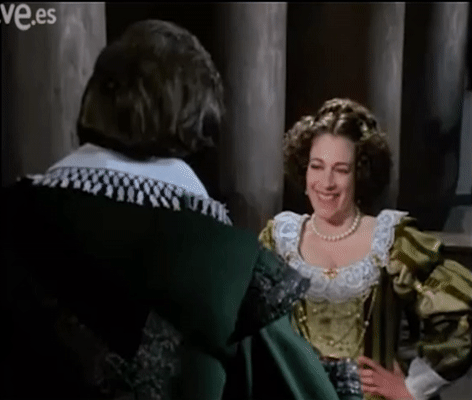



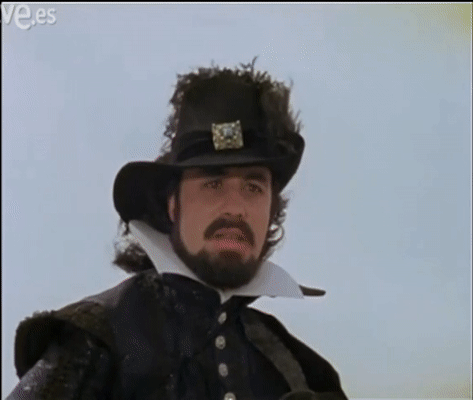

María Inés Calderón (1611 – 1646 )
“A woman who apparently was not beautiful, but she had a lot of grace and charm. In addition to reciting, singing and dancing very well.”- Elvira Menéndez
María Inés Calderón, known as La Calderona and Marizápalos, was the most important actress in the Spain of the seventeenth century, who became the mistress of King Felipe IV and mother of his illegitimate son, Juan José of Austria. La Calderona was involved in a relationship with Ramiro Pérez de Guzmán, Duke of Medina de las Torres, at the time Felipe IV first saw and got smitten by the actress-singer on her debut at the Corral de la Cruz theatre in Madrid in 1627. But when the king got in the way, the lover had no choice but bow his head. La Calderona became the favorite of Felipe IV.
Enamoured of the red-headed actress, Felipe IV installed his lover in a balcony overlooking the square, a decision that flew right in the face of convention as these seats were meant to be the exclusive preserve of the aristocracy. After spotting her rival sitting in the posh seats, the queen Isabel de Borbón flew into a rage and threw La Calderona out of her love nest in the palace. To compensate, the rather sneaky king, then ordered that a secret balcony to be built under an arch. In this way, his lover could attend events at the Plaza Mayor and remain out of sight.
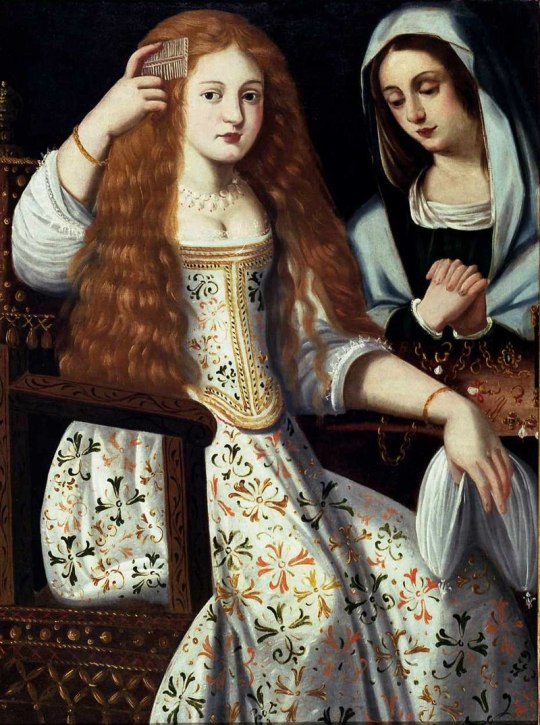
Upon the birth of her son in 1629, La Calderona lost the custody of him despite her protests. Her relationship to the king ended the same year. There were rumors at the time that her son was fathered by Ramiro Pérez de Guzmán. La Calderona was forced to become a nun against her will. Felipe IV ordered her entry into the monastery of San Juan Bautista of Valfermoso de las Monjas, in Alcarria, where the interpreter would lose contact with life, the theater, her son. In 1642, the King recognized Juan José officially as his son, and Juan José began his life's career as a military representative of his father's interests.
It was said that she died in closing, already under the name of Mrs. Maria de San Gabriel, Abbess. But it has also been written that she fled: that she managed, on the one hand, to escape from God's mandate and escape, along with a bandit, to the Sierra de la Calderona (Valencia) and, in another version, that she returned to Madrid, where she would welcome the guild of actors: « A kind of union that gave relief to interpreters who were in poor condition or who were already older. There seems to be data that helped her. Which would mean that she did not die in the convent as they officially said ».
The few concrete data of María Inés Calderón have served to increase the legend. Also regarding her family. It is not uncommon to find references to Pedro Calderón de la Barca as father of the creature. But far from it. It seems that, being very small, appeared at the door of Juan Calderón, a lender of the theater world and father of Juana, also an actress, although not as renowned as «La Calderona».
(x)(x)
#Maria Inés Calderón#La Calderona#Felipe IV#Philip IV#Juan José de Austria#Juan José of Austria#women in history#Spanish history#Carmen Maura#Paisaje con figuras#documentary
24 notes
·
View notes